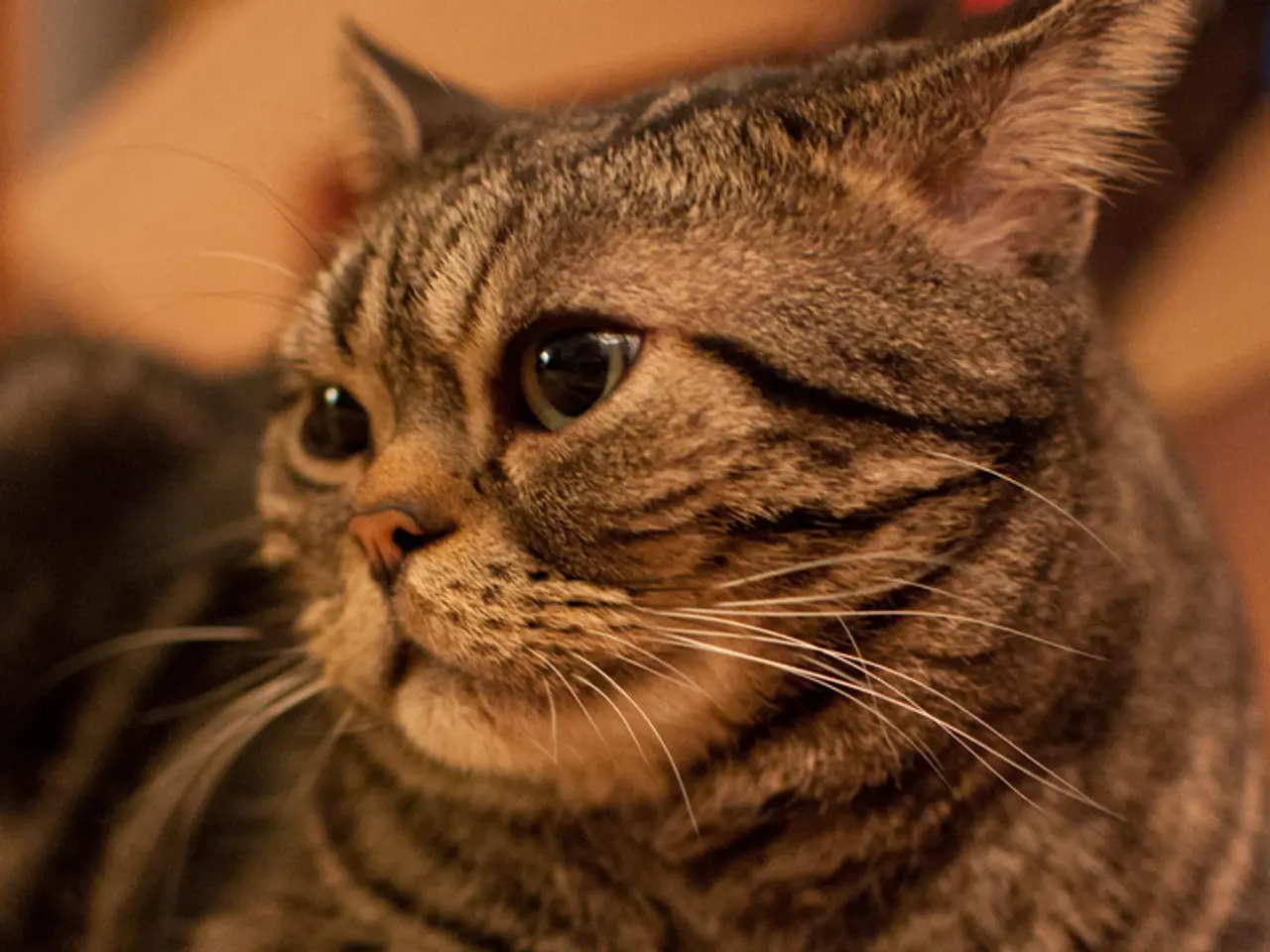Cats deter mice? An authority confirms this claim's authenticity
Cats and mice have a long-standing relationship, one that extends beyond the confines of a pet's playtime. While most people are familiar with the playful chase that occurs between the two, there's a more serious side to this relationship that's worth exploring.
Firstly, it's important to note that diseases and parasites transmitted from mice to cats can, in some cases, be passed from cats to humans, a phenomenon known as zoonotic. Cats can contract a variety of illnesses from mice, including salmonella, cowpox, toxoplasmosis, leptospirosis, tularemia, yersinia pestis, and hantavirus. These diseases can cause serious illness and, in some cases, can be fatal.
One interesting fact about this relationship is that mice infected with the single-celled parasite toxoplasma gondii can lose their aversion to feline urine and may be attracted to cat odors. This change in behaviour can potentially increase the risk of disease transmission.
Cats, being obligate carnivores, have a strong ethological need to hunt small prey, including mice. The predator instinct in pet cats is influenced by factors such as genetics, early socialization, environment, prey availability, and individual personality. Certain breeds like Maine Coons and Bengals are renowned for their high predatory drive and exceptional hunting skills.
However, not every cat shares this inclination. Some cats may be indifferent or even afraid of rodents. Every cat is unique, and their behaviour can vary greatly. Indoor cats, for instance, may develop weaker hunting instincts compared to those raised in environments where they are encouraged to hunt, such as barns, farms, and stables.
Now, let's talk about the hunting success rate. Cats will normally hunt many times throughout the day, though less than 50% of their hunts are likely to be successful. If a cat is a keen hunter, they may bring live mice into the house rather than keeping them away. This can pose a risk, as mice can host intestinal worms, mites, ticks, and fleas, which can infest cats, causing problems from skin irritation and gastrointestinal discomfort to organ damage, anemia, and the transmission of diseases.
To minimise these risks, it's crucial to keep up-to-date with routine antiparasitic treatments, especially for cats that are keen hunters. If a cat has been bitten by a mouse and shows signs of irritation or swelling, or if they develop a fever, vomiting, diarrhea, signs of abdominal discomfort, or lethargy after eating a mouse, it's advisable to contact your vet.
In an effort to keep mice at bay, some homeowners turn to natural methods. Growing marigolds and petunias in pots positioned by doors and windows is said to deter mice. The strong scents of certain herbs and spices, such as cedarwood essential oil, can also act as a natural rodent deterrent.
Lastly, it's important to seal any cracks, holes, or gaps in your foundations, walls, roof, and around doorways and windows with steel wool, copper mesh, caulk, or expanding foam insulation to prevent mice from taking up residence in your home.
In conclusion, while cats and mice may seem like an unlikely pair, their relationship is one that requires careful consideration. Understanding the risks and taking preventative measures can help ensure a healthy and happy home for both cats and their owners. As Bryon, the cat behaviorist and vet nurse, advises, it's best to let cats express their natural instincts, but with caution and awareness.
Read also:
- Impact of Alcohol on the Human Body: Nine Aspects of Health Alteration Due to Alcohol Consumption
- Understanding the Concept of Obesity
- Tough choices on August 13, 2025 for those born under Aquarius? Consider the advantages and disadvantages to gain guidance
- Microbiome's Impact on Emotional States, Judgement, and Mental Health Conditions







